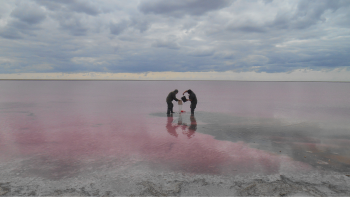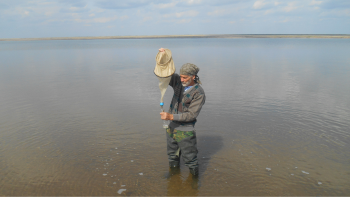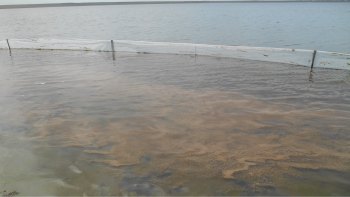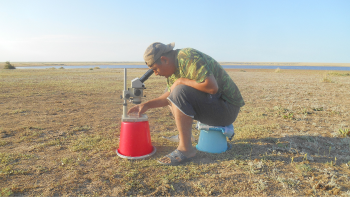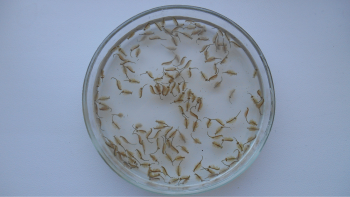In numerous salt lakes of the Pavlodar region, valuable artemia crustacean lives. Having a high content of proteins, fats, vitamins and hormones, Artemia is of great interest to the food and pharmaceutical industries, aquaculture and agriculture.
Up to 2000 tons of Artemia eggs are used annually in the world and demand is increasing. In Pavlodar region, it is possible to mine from 700 to 1000 tons annually. But due to the fact that from year to year sharp changes in climate occur, number of Artemia fluctuate greatly, catchings are very unstable.
PSU scientists decided “not to wait for mercy from nature” and develop a technology to artificially maintain high lake productivity and obtain stable catching even in extremally severe years.
In 2018, a grant for three years of research was received from the Ministry of Education and Science of the Republic of Kazakhstan. The basis of the research team was made up of teachers of the Department of “Biology and Ecology” of S. Toraighyrov PSU.
Specialists of "Ecological Center of Irtysh Land" LLP, led by A. Lunkov, were involved in cooperation. During the work, doctoral student of L.Gumilyov ENU Akhmetov K.I. collects material for writing a doctoral dissertation. Great help in research and experimental work is provided by "Sanbao Ktk co LTD" LLP, on the basis of which experimental work is carried out.
Over the first two years, more than 70 salt lakes of the region were examined, their hydrological, hydrochemical and hydrobiological characteristics were obtained, stocks of Artemia were estimated.
To grow Artemia larvae in one of the lakes, an “incubator” was built, in which, during round-the-clock observation, the first batch of 2.5 billion nauplii (larvae) was obtained, which were released into their native element.
The results of the first laboratory and field work have convincingly shown that directly in the lake “incubators”, outdoors, without using incubation equipment and electricity, viable Artemia larvae can be obtained throughout the summer and autumn season and released immediately into their native environment.







